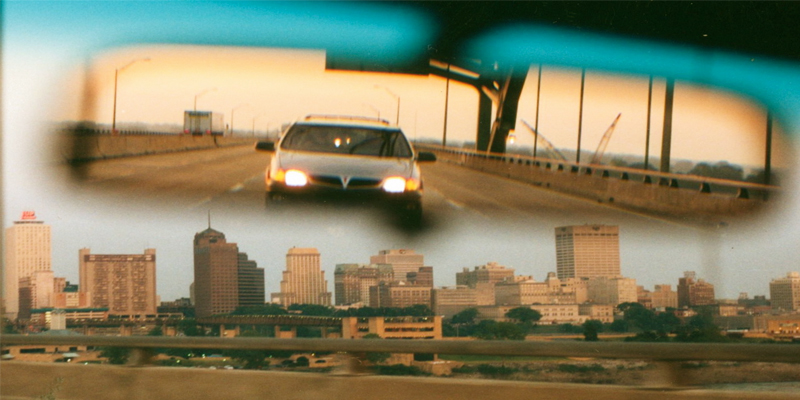This afternoon Gonzaga takes on UCLA in the Sweet Sixteen of the NCAA Tournament. The Bulldogs are just two wins away from reaching the Final Four for the first time in school history.
If Gonzaga does somehow manage to make it to the Final Four, I might have the opportunity to go watch them play in Indianapolis. So am I buying a plane ticket now?
Nope.
Why not, you ask? Is it because Gonzaga doesn’t stand a chance to make the Final Four?
No. Vegas betting lines show Gonzaga with the greatest odds of advancing out of the South Region (tied with Duke).
Have I chosen not to make my itinerary for Indy because I can’t get a ticket to the game?
No. I am very fortunate to have a connection that would, more than likely, allow me to get tickets.
Gonzaga has great odds to advance and I have even better odds to get tickets. So why am I not booking my trip now?
Because they might lose. They might lose to UCLA or they might lose in the net round. And my little human brain is more concerned with the potential of a loss, than the potential gain of having a once in a lifetime experience at the Final Four.
Why is this?
The answer just might be something called loss aversion. Loss aversion refers to people’s tendency to strongly prefer avoiding losses to acquiring gains.
When people are asked whether they would prefer to have a job at which they earned $30,000 the first year, $40,000 the second year, and $50,000 the third year or a job which they earned $60,000 then $50,000 then $40,000 they generally prefer the job with the increasing wages, despite the fact that they would earn less money over the course of the three years.
Seems silly right? But people don’t see the opportunity to gain more money over the course of three years. All they can focus on is losing $10,000 each year. People hate losing much more than they like winning.
That is the power of loss aversion.
In 2013, Gonzaga was in a similar situation. They had a great team and were a heavy favorite to advance deep into the tournament. But as the second sentence of this post indicated, they did not make it to the Final Four. That team won 32 games, but I did not celebrate any of those losses as hard as I took the loss to Wichita State that eliminated them from the tournament.
We put a lot more weight on negative events than positive events and on losses than on gains. We are averse to experiencing loss.
That is why I am not rushing out to buy a plane ticket to Indianapolis. I am worried it might happen again.
But Adam, just yesterday you told us not to worry. You said that 85% of the stuff we worry about ends up having positive or neutral outcomes.
I sure did. But unfortunately, other studies suggest that losses are twice as powerful psychology as gains. So that 15% of the time that things do turn out negative leave much more of an impact that the positive 85%.
That is why, even though 79% of the time, worriers say they handled it better than they thought they would, we are still prone to worrying.
So let’s recap…losing stinks and we remember losing more than we do winning, so we do everything we can to avoid losing. Basically, we use our powerfully negative past experiences to drive our future decisions.
Let’s compare this to actual driving. Pretend you drive to work 100 times and 15 times you get rear-ended. (Ignore for a second the unlikelihood of this actually happening). You aren’t seriously injured during any of the 15 crashes. In fact, those 15 times aren’t nearly as bad as you assumed a car crash would be. You know you’ve made it to work safely 85 times, but you aren’t thinking about those times are you? You are focused on the 15 times when someone smashed into your rear bumper.
What would you do now? Would you start driving by looking in the rearview mirror? Of course not. Sure that might feel like it would help you see the next crash coming, but that wouldn’t help you get to work safely. If you are smart, you would follow all traffic laws, keep your eyes focused on the road ahead and maybe pick a different route to drive.
Loss aversion has been described as driving by looking in the rearview mirror. Not looking ahead while driving is a bad decision. Driving properly, but still getting into a crash is a bad outcome.
Loss aversion makes us unable to distinguish between a bad decision and a bad outcome.
It is one thing to make a poor decision. Responding to a spam email that asks for your social security # is a great way to get your identity stolen and lose a lot of money. You may also lose a lot of money by purchasing a stock that has a good track record.
In both instances, you lost a lot of money, but only one of those two is a bad decision.
If I spend $500 on plane tickets and Gonzaga loses tonight, that is a bad outcome. Taking a chance on missing out on the Final Four because I am looking into the proverbial rearview mirror and expecting a Gonzaga loss might turn out to be a bad decision.
Photo credit: Wikipedia

